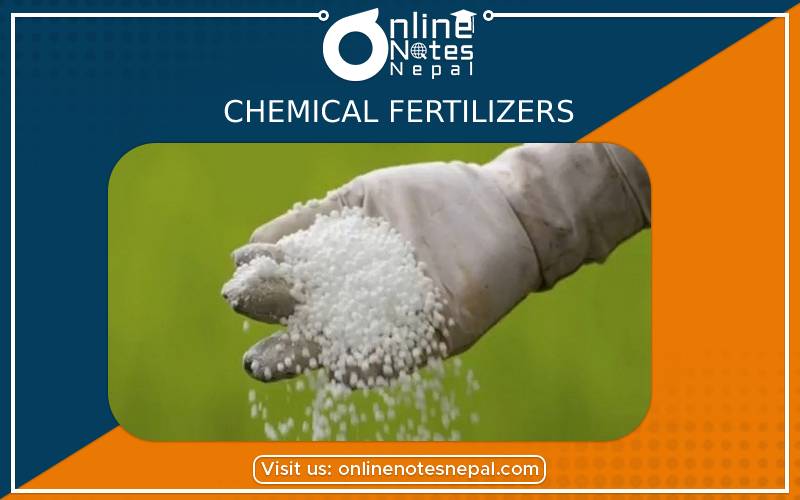Published by: Nuru
Published date: 16 Jan 2022

The population of the world is increasing day by day. For this growing population, plenty of crops should be produced. So, to fulfill the needs of the growing population, the farmers use various fertilizers in agriculture for more production food crops. Various types of fertilizers are used in agriculture like Nitrogenous fertilizers, Phosphorous fertilizers, Potassium fertilizers, etc.
Due to the constant use of land for the production of crops, the fertility of the soil goes on decreasing. This decrease in fertility of soil results in the less production or loss the plants due to fewer nutrients for the production of crops. In this case, the fertility of the soil can be increased by using various fertilizers.
Fertilizers are those substance by use of which we can increase the fertility of the soil. It provides the essential nutrients for the proper growth and development of the plants. It also nourishes the micro- organisms that help to maintain the fertility of the soil. There are two types of fertilizers which are given below;
Organic fertilizers are the natural fertilizers obtained from the decay and decomposition of animal remains, poultry droppings, and dead plants. They provide necessary nutrients for the growth of plants but in less amount than chemical fertilizers. They have very less amount of nitrogen. Some examples of organic fertilizers are ash, bone meal, green fertilizers, etc. Some of the mostly used types of organic fertilizers are given below,
Fertilizers obtained from green plants like grasses, leaves, used plants etc. are green manure. They provide necessary nutrient for the plant. These plants are grown first and after its use, they are turned into the soil to increase the fertility of the soil. They increase crop yields, protect the plant from various pests and increase the overall fertility of the soil.
Compost manure is a natural fertilizer obtained from dead and decayed things or the mixture of cattle dung, poultry droppings, and crop residues. For the preparation of compost manure, at first all unnecessary or used decomposable things and wastes of animals are mixed and kept in a pit. They are left for some days. Lime is also added to make good fertilizers. They are decomposed by microorganisms and are converted to compost which can be used to increase the fertility of the soil.
Advantages of Organic Fertilizers
Disadvantages of Organic Fertilizers
Chemical fertilizers are the artificial fertilizers manufactured in industries. They are prepared from water soluble salts. They provide enough nutrients for the proper development of crops. Various examples of chemical fertilizers are sulphate, ammonium phosphate, potassium sulphate, etc. They provide various types of nutrients like nitrogen, potassium, etc. On the basis of nutrients, chemical fertilizers are divided into three common types which are given below with short description,
Nitrogenous fertilizers are a type of chemical fertilizer which provides the salt of nitrogen for the proper growth and development of plants. By use of nitrogenous fertilizers, we can fulfill the lack of nitrogen in the soil. Various types of nitrogenous fertilizer that are commonly used in our field are ammonium sulphate (NH₄)₂SO₄, ammonium nitrate (NH₄NO₃), urea CO(NH₂)₂and cyanamide Ca(CN)₂.
Function of Nitrogenous Fertilizers are:
Effects of deficiency of nitrogen are:
Phosphorous fertilizers contain phosphorus as the main constituent. It is important for the strong growth of plants. It is also associated with complex energy transformation in plants. Some of the examples of phosphorous fertilizers are ammonium phosphate (NH4)3PO4, calcium superphosphate Ca(H₂PO₄)₂ and triple super phosphate 3Ca(H₂PO₄)₂ 2CaSO4.
Function of Phosphorous Fertilizers are:
Effects of deficiency of phosphorous are:
Fertilizers containing potassium is called potassium fertilizers or potash fertilizers. Some of the examples of potassium fertilizers are potassium chloride (KCL), potassium nitrate (KNO₃), potassium sulphate (K₂SO₄) and potassium carbonate (K₂CO₃).
Function of potassium are:
Effects of deficiency of potassium are:
Advantages of Chemical Fertilizers are:
Disadvantages of Chemical Fertilizers
Due to the needs of increasing population, chemical fertilizers are largely used for the production of more foods. When we use chemical fertilizers in soil, it is washed away by the rainwater. This water reaches to the sources of water and increases the growth of unnecessary aquatic plants that decreases the amount of oxygen in the water.
This decrease in oxygen results in the death of aquatic life like fish, etc. This imbalance the aquatic ecosystem. Similarly, it also pollutes the air through its harmful gasses.